The Lund Research Group
Jennifer L. Lund, PhD
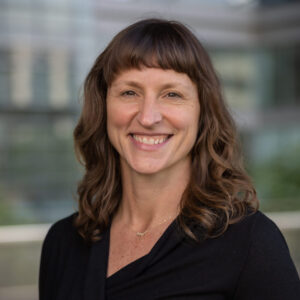
Principal Investigator of the Lund Research Group, Associate Professor of Epidemiology, and member of the Center for Pharmacoepidemiology and the Lineberger Comprehensive Cancer Center at the University of North Carolina at Chapel Hill.
Learn more about Dr Lund
Current Research Group Members
Claire Su, MS
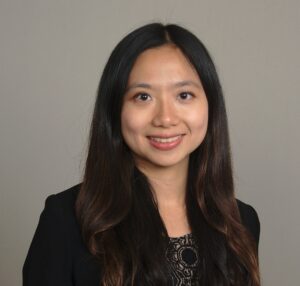 Claire (I-Hsuan) Su is a fourth-year PhD student in the Department of Epidemiology at UNC. Prior to her doctoral program, she earned a BA in Mathematics & Statistics from Carleton College and an MS in Biostatistics from UNC. Her previous work as a Data and Policy Analyst at Acumen LLC involved leveraging claims data to study post-market vaccine safety and drug prescribing patterns within a regulatory context.
Claire (I-Hsuan) Su is a fourth-year PhD student in the Department of Epidemiology at UNC. Prior to her doctoral program, she earned a BA in Mathematics & Statistics from Carleton College and an MS in Biostatistics from UNC. Her previous work as a Data and Policy Analyst at Acumen LLC involved leveraging claims data to study post-market vaccine safety and drug prescribing patterns within a regulatory context.
As a doctoral student, Claire conducted simulation studies to highlight systematic biases in observational research and explored methods to address uncontrolled confounding. She also mitigated immortal time bias in a study comparing breast cancer treatments using the novel approach of target trial emulation. Additionally, she worked as a consultant for CERobs Consulting LLC, assisting with clinical trial design and real-world evidence studies. Recently, Claire developed a statistical model predicting life expectancy in older adults with advanced cancer, utilizing geriatric assessment data from clinical trials and linking it with death information from the National Death Index.
Her dissertation project will focus on evaluating and applying methods to transport the benefits of lung cancer screening from clinical trial to real-world populations in the US.
In her free time, Claire enjoys yoga, cooking, playing with her cat, and spending time with friends and family.
Joyce Pak, MPH
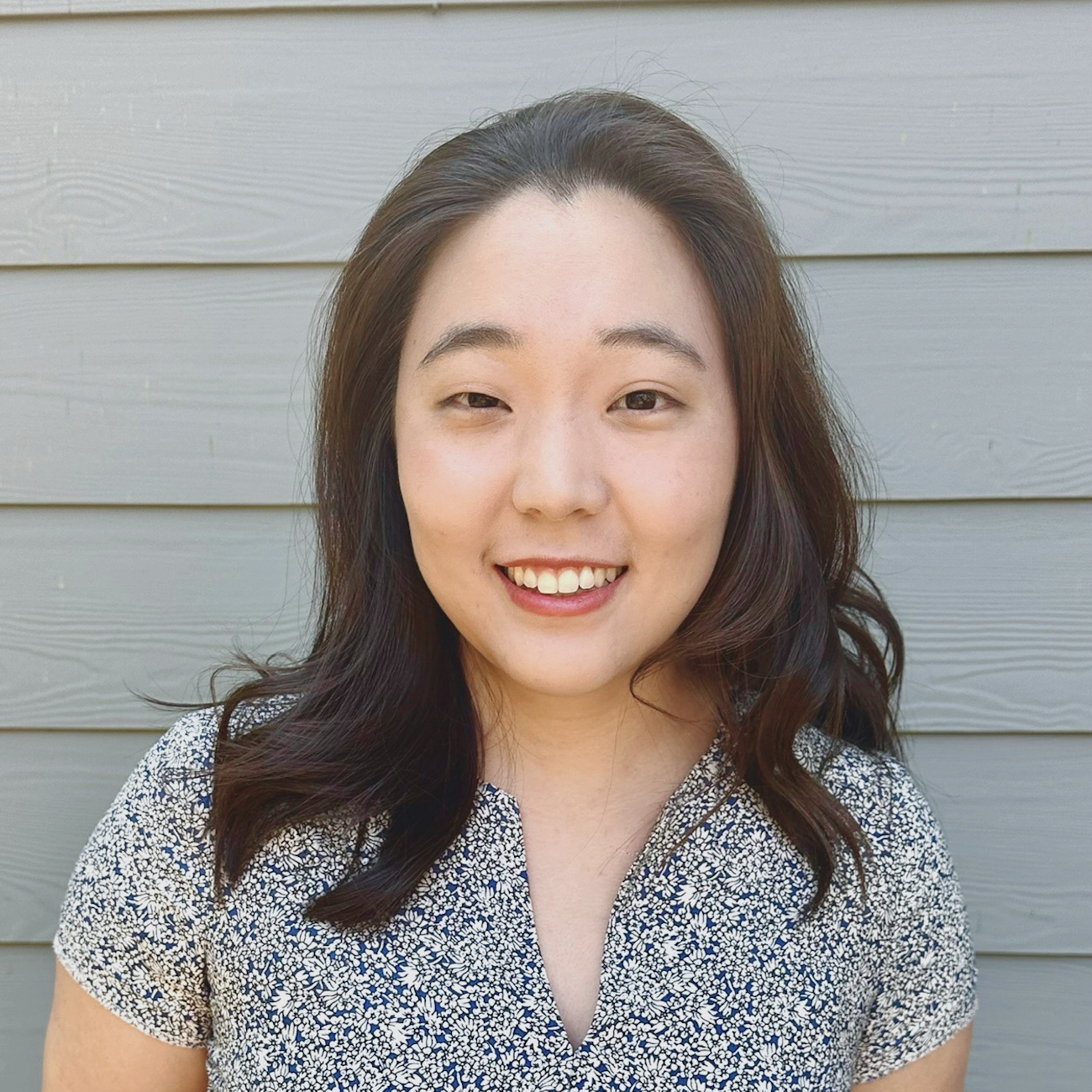 Joyce Pak is a fourth-year PhD student in the Department of Epidemiology at UNC. She received her BA in biology from University of California Berkeley and her MPH in biostatistics and epidemiology from Brown University. Her research interests lie in evidence-based medicine using large healthcare databases and data linkages related to cancer care and outcomes and environmental interactions. Her dissertation research focuses on characterizing cancer care delivery following an extreme weather event. In her free time, Joyce enjoys traveling, going to the gym, and spending time with family and friends.
Joyce Pak is a fourth-year PhD student in the Department of Epidemiology at UNC. She received her BA in biology from University of California Berkeley and her MPH in biostatistics and epidemiology from Brown University. Her research interests lie in evidence-based medicine using large healthcare databases and data linkages related to cancer care and outcomes and environmental interactions. Her dissertation research focuses on characterizing cancer care delivery following an extreme weather event. In her free time, Joyce enjoys traveling, going to the gym, and spending time with family and friends.
Jeanny Wang, MPH
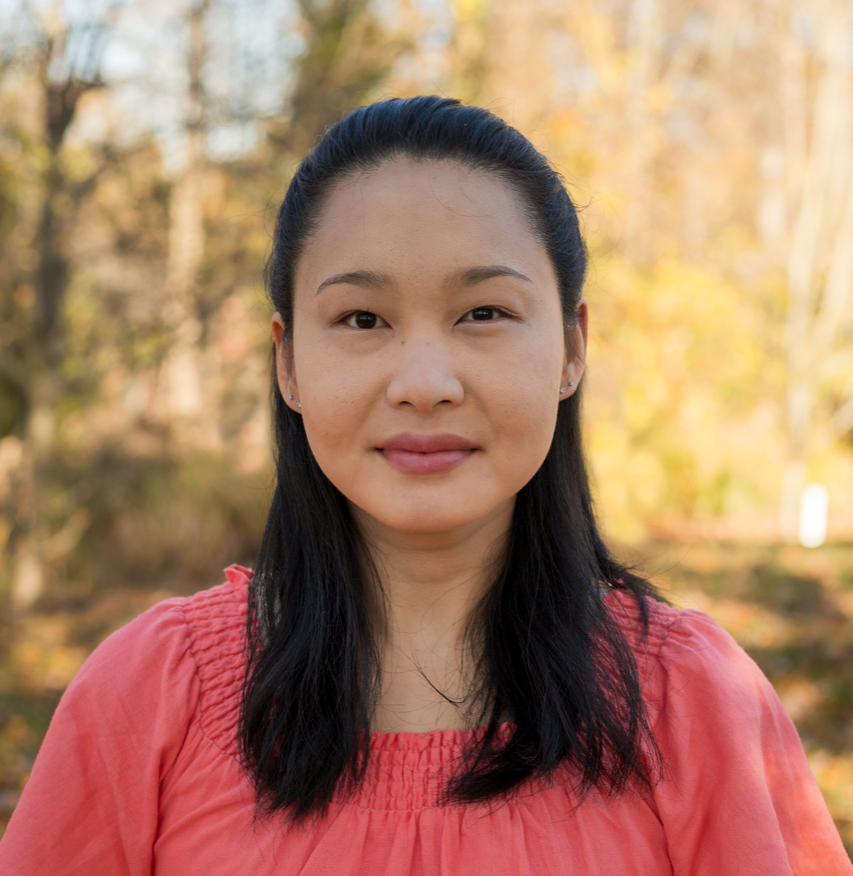 Jeanny is a second-year PhD student in the Department of Epidemiology. Prior to joining UNC, she earned a Bachelor of Arts in Visual and Media Studies, obtained an MPH in Epidemiology, and completed a post-baccalaureate fellowship at the National Cancer Institute Division of Cancer Epidemiology and Genetics. Her current research focuses on describing the burden of cancer among older adults, and the role of patient-provider communication with cancer outcomes. She is currently supported by a fellowship funded through the Center for Pharmacoepidemiology, Department of Epidemiology, UNC Gillings School of Global Public Health.
Jeanny is a second-year PhD student in the Department of Epidemiology. Prior to joining UNC, she earned a Bachelor of Arts in Visual and Media Studies, obtained an MPH in Epidemiology, and completed a post-baccalaureate fellowship at the National Cancer Institute Division of Cancer Epidemiology and Genetics. Her current research focuses on describing the burden of cancer among older adults, and the role of patient-provider communication with cancer outcomes. She is currently supported by a fellowship funded through the Center for Pharmacoepidemiology, Department of Epidemiology, UNC Gillings School of Global Public Health.
Xiaomeng (Olivia) Chen, MSPH
 Olivia is a second-year PhD student in the Department of Epidemiology at UNC. She earned a Bachelor of Medicine in Preventive Medicine at Peking University in China and obtained an MSPH at Johns Hopkins Bloomberg School of Public Health with a focus on population health. After graduation, Olivia joined the Epidemiology Research Group in Organ Transplantation at Johns Hopkins Medicine, as a Research Data Analyst, conducting aging and clinical epidemiologic research among kidney transplant populations. Her current research interest lies in utilizing aging metrics to improve risk prediction and identifying effective strategies to improve patient outcomes in broader patient populations.
Olivia is a second-year PhD student in the Department of Epidemiology at UNC. She earned a Bachelor of Medicine in Preventive Medicine at Peking University in China and obtained an MSPH at Johns Hopkins Bloomberg School of Public Health with a focus on population health. After graduation, Olivia joined the Epidemiology Research Group in Organ Transplantation at Johns Hopkins Medicine, as a Research Data Analyst, conducting aging and clinical epidemiologic research among kidney transplant populations. Her current research interest lies in utilizing aging metrics to improve risk prediction and identifying effective strategies to improve patient outcomes in broader patient populations.
Alison Musty
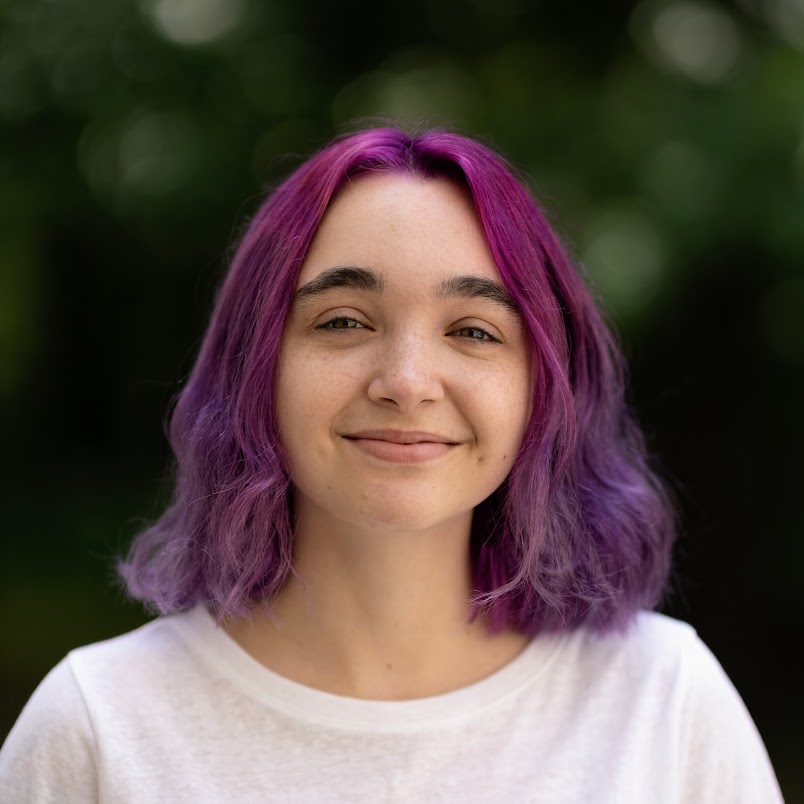 Allison Musty is a senior undergraduate student at the College of Arts and Sciences at UNC, where she is earning her B.S. in biology and B.A. in sociology with a minor in chemistry. She is currently supported by UNC’s Carolina Covenant Scholarship and grants related to her research through the Carolina Population Center. Her research interests involve methods of measuring socioeconomic status (SES) and trends in medication use in older adult populations, with an emphasis on the use of wealth as a measure of SES. Her senior thesis work is focused on associations between wealth and education as measures of SES in older adults with reference to survey measures of sleep medication use. After graduation, she hopes to gain experience in research in topics related to medication use in older adults through work in clinical research, before returning to earn her MPH.
Allison Musty is a senior undergraduate student at the College of Arts and Sciences at UNC, where she is earning her B.S. in biology and B.A. in sociology with a minor in chemistry. She is currently supported by UNC’s Carolina Covenant Scholarship and grants related to her research through the Carolina Population Center. Her research interests involve methods of measuring socioeconomic status (SES) and trends in medication use in older adult populations, with an emphasis on the use of wealth as a measure of SES. Her senior thesis work is focused on associations between wealth and education as measures of SES in older adults with reference to survey measures of sleep medication use. After graduation, she hopes to gain experience in research in topics related to medication use in older adults through work in clinical research, before returning to earn her MPH.
Others not pictured:
Courtney Schlusser, MPH
Disha Subramaniam, MA
Bria Carmichael, MPH
Past Research Group Members and International Visitors
Victoria M. Petermann, PhD, BSN, RN
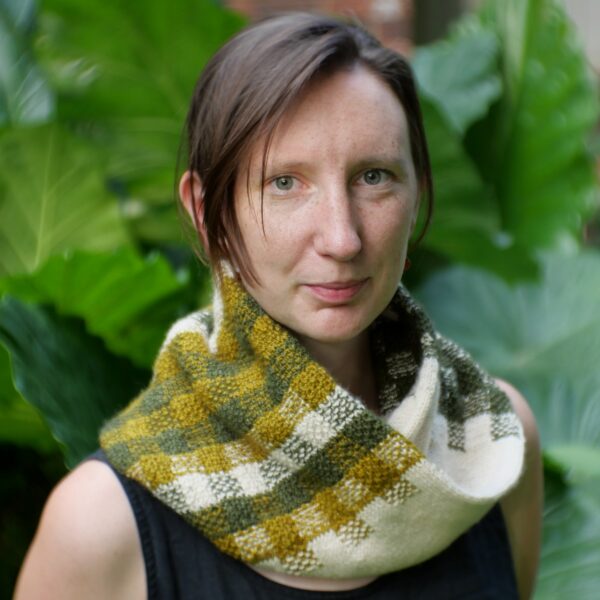 Victoria Petermann obtained her BA in women’s and gender studies in 2015 from UNC Chapel Hill. She subsequently earned a BS in nursing in 2017 and her PhD in nursing in 2023 from UNC Chapel Hill through the Hillman Scholars Program in Nursing Innovation, an integrated BSN to PhD program designed to prepare the next generation of nurse researchers. Throughout her PhD studies,she was supported by the Hillman Foundation and the T32 Predoctoral Fellowship through the Lineberger Comprehensive Cancer Center’s Cancer Cancer Control and Education Program (CCEP). Victoria’s research interests are focused understanding the multilevel factors that influence outcomes and access to reproductive health care. In her dissertation work, she leveraged SEER-Medicare and qualitative methods to examine the role of rurality, distance to care, and neighborhood socioeconomics on access to adjuvant therapy and survival for endometrial cancer patients. Dr. Petermann is currently a post-doctoral fellow at the University of Virginia School of Nursing.
Victoria Petermann obtained her BA in women’s and gender studies in 2015 from UNC Chapel Hill. She subsequently earned a BS in nursing in 2017 and her PhD in nursing in 2023 from UNC Chapel Hill through the Hillman Scholars Program in Nursing Innovation, an integrated BSN to PhD program designed to prepare the next generation of nurse researchers. Throughout her PhD studies,she was supported by the Hillman Foundation and the T32 Predoctoral Fellowship through the Lineberger Comprehensive Cancer Center’s Cancer Cancer Control and Education Program (CCEP). Victoria’s research interests are focused understanding the multilevel factors that influence outcomes and access to reproductive health care. In her dissertation work, she leveraged SEER-Medicare and qualitative methods to examine the role of rurality, distance to care, and neighborhood socioeconomics on access to adjuvant therapy and survival for endometrial cancer patients. Dr. Petermann is currently a post-doctoral fellow at the University of Virginia School of Nursing.
Emilie Duchesneau, PhD, MSPH
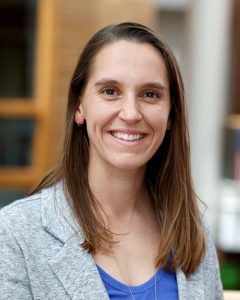 Emilie Duchesneau received a BA in economics from Boston College in 2014 and worked in health economics and outcomes research consulting at Analysis Group and Policy Analysis Inc before joining UNC in 2018. She was supported by a T32 Predoctoral Fellowship through the Lineberger Comprehensive Cancer Center’s Cancer Care Quality Training Program (CCQTP), and achieved her PhD in Epidemiology at UNC-Chapel Hill. Emilie’s research interests lie at the intersections of aging, oncology, and pharmaceutical interventions. Her broad research goals are to use advanced epidemiologic and statistical methods to improve the clinical care of older adults, with a special focus on older cancer survivors. She has extensive experience using large healthcare databases and data linkages to conduct health services research. Her dissertation research is focused on improving the ascertainment of frailty, as a patient-centered geriatric outcome, in administrative healthcare databases.
Emilie Duchesneau received a BA in economics from Boston College in 2014 and worked in health economics and outcomes research consulting at Analysis Group and Policy Analysis Inc before joining UNC in 2018. She was supported by a T32 Predoctoral Fellowship through the Lineberger Comprehensive Cancer Center’s Cancer Care Quality Training Program (CCQTP), and achieved her PhD in Epidemiology at UNC-Chapel Hill. Emilie’s research interests lie at the intersections of aging, oncology, and pharmaceutical interventions. Her broad research goals are to use advanced epidemiologic and statistical methods to improve the clinical care of older adults, with a special focus on older cancer survivors. She has extensive experience using large healthcare databases and data linkages to conduct health services research. Her dissertation research is focused on improving the ascertainment of frailty, as a patient-centered geriatric outcome, in administrative healthcare databases.
Jeff Yang, PhD, MSPH
 Jeff Yang achieved his PhD in Epimdeiology at UNC-Chapel Hill, a with research experience in diabetes, cancer, and digestive disease pharmacoepidemiology. After receiving bachelor’s degrees in music, premedical studies, and biomedical engineering from Columbia University, he worked for several years at Acumen, LLC, in the San Francisco Bay Area, as a health policy researcher and consultant on various questions relating to post-market medication safety in the US Medicare-insured population. Outside of the Lund Research Group, Jeff also participates in the UNC pharmacoepidemiology seminar and diabetes research group, as well as the UNC Center for Gastrointestinal Biology and Disease. His current research is primarily centered around the pharmacoepidemiology of various biologic and immunosuppressive treatments for inflammatory bowel disease patients.
Jeff Yang achieved his PhD in Epimdeiology at UNC-Chapel Hill, a with research experience in diabetes, cancer, and digestive disease pharmacoepidemiology. After receiving bachelor’s degrees in music, premedical studies, and biomedical engineering from Columbia University, he worked for several years at Acumen, LLC, in the San Francisco Bay Area, as a health policy researcher and consultant on various questions relating to post-market medication safety in the US Medicare-insured population. Outside of the Lund Research Group, Jeff also participates in the UNC pharmacoepidemiology seminar and diabetes research group, as well as the UNC Center for Gastrointestinal Biology and Disease. His current research is primarily centered around the pharmacoepidemiology of various biologic and immunosuppressive treatments for inflammatory bowel disease patients.
Charles (Charley) Gaber, PhD, MPH
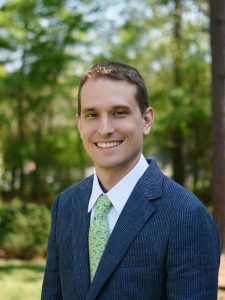 Charles (Charley) Gaber (Charley) received his BS in public health and economics from Tulane University in 2013 and his MPH in general epidemiology from University of Michigan in 2015. After earning his MPH, Charley worked as a research data analyst at Arbor Research Collaborative for Health, where he gained experience in chronic disease epidemiology and working with administrative claims data. He achieved his PhD in epidemiology at UNC-Chapel Hill and was supported by a NIH T32 training grant in digestive disease epidemiology. He has published research on acute colonic diverticulitis, esophageal achalasia, and gastrointestinal malignancies. He completed a summer internship in pharmacoepidemiology at RTI-Health Solutions, where he worked on post-marketing safety studies and a protocol for a natural history of disease study. Charley has expertise in study design and statistical analysis with a particular focus on propensity scores, competing risks, and recurrent events. His dissertation research focused on the comparative effectiveness of esophageal cancer treatments in older adults using linked registry and claims data. Broadly, his research goals are to work collaboratively to design and execute studies that will help inform clinical decision making for older cancer patients.
Charles (Charley) Gaber (Charley) received his BS in public health and economics from Tulane University in 2013 and his MPH in general epidemiology from University of Michigan in 2015. After earning his MPH, Charley worked as a research data analyst at Arbor Research Collaborative for Health, where he gained experience in chronic disease epidemiology and working with administrative claims data. He achieved his PhD in epidemiology at UNC-Chapel Hill and was supported by a NIH T32 training grant in digestive disease epidemiology. He has published research on acute colonic diverticulitis, esophageal achalasia, and gastrointestinal malignancies. He completed a summer internship in pharmacoepidemiology at RTI-Health Solutions, where he worked on post-marketing safety studies and a protocol for a natural history of disease study. Charley has expertise in study design and statistical analysis with a particular focus on propensity scores, competing risks, and recurrent events. His dissertation research focused on the comparative effectiveness of esophageal cancer treatments in older adults using linked registry and claims data. Broadly, his research goals are to work collaboratively to design and execute studies that will help inform clinical decision making for older cancer patients.
Christine Hsu, PhD, PharmD, MPH
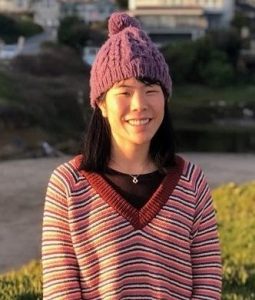 Christine completed her PhD within the Department of Epidemiology and in the pharmacoepidemiology group. Prior to UNC, Christine received her PharmD from the University of the Pacific and her MPH from Washington University in St. Louis. Christine’s broad research interests are in cancer care and outcomes, access to care, and medication use and safety, primarily in older adults. She was a Cancer Care Quality Training Program (CCQTP) trainee through the Lineberger Comprehensive Cancer Center, and her dissertation research focused on characterizing hepatocellular carcinoma screening trends in North Carolina. Dr. Hsu currently works as post-doctoral fellow at the University of Texas Medical Branch Health at Galveston.
Christine completed her PhD within the Department of Epidemiology and in the pharmacoepidemiology group. Prior to UNC, Christine received her PharmD from the University of the Pacific and her MPH from Washington University in St. Louis. Christine’s broad research interests are in cancer care and outcomes, access to care, and medication use and safety, primarily in older adults. She was a Cancer Care Quality Training Program (CCQTP) trainee through the Lineberger Comprehensive Cancer Center, and her dissertation research focused on characterizing hepatocellular carcinoma screening trends in North Carolina. Dr. Hsu currently works as post-doctoral fellow at the University of Texas Medical Branch Health at Galveston.
Shahar Shmuel, PhD, ScM
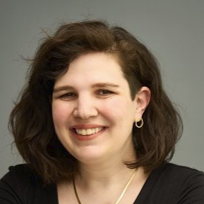 Shahar Shmuel, PhD, ScM was a Postdoctoral Fellow in the Department of Epidemiology at the University of North Carolina at Chapel Hill. Her main research interest focus on geriatric pharmacoepidemiology, and her work aims to promote safe and effective medication use that improves older adults’ quality of life. She earned her Master of Science in Epidemiology from the Johns Hopkins Bloomberg School of Public Health in 2015 and her Doctorate in Epidemiology from the University of North Carolina at Chapel Hill in 2020. Her early work focused on describing potentially inappropriate medication use and adverse health outcomes, including frailty and fractures. For her dissertation, she characterized use of medications with anticholinergic and sedating properties among Medicare beneficiaries using the Drug Burden Index (DBI), a measure of cumulative drug exposure. As a Postdoctoral Fellow, she worked on expanding the scope of her research to directly support medication deprescribing interventions. Dr. Shmuel currently works at Pfizer.
Shahar Shmuel, PhD, ScM was a Postdoctoral Fellow in the Department of Epidemiology at the University of North Carolina at Chapel Hill. Her main research interest focus on geriatric pharmacoepidemiology, and her work aims to promote safe and effective medication use that improves older adults’ quality of life. She earned her Master of Science in Epidemiology from the Johns Hopkins Bloomberg School of Public Health in 2015 and her Doctorate in Epidemiology from the University of North Carolina at Chapel Hill in 2020. Her early work focused on describing potentially inappropriate medication use and adverse health outcomes, including frailty and fractures. For her dissertation, she characterized use of medications with anticholinergic and sedating properties among Medicare beneficiaries using the Drug Burden Index (DBI), a measure of cumulative drug exposure. As a Postdoctoral Fellow, she worked on expanding the scope of her research to directly support medication deprescribing interventions. Dr. Shmuel currently works at Pfizer.
Sydney Thai, PhD, MS
 Education: Cornell University, B.S. – Human Biology, Health & Society, 2011; Columbia University, M.S. – Nutrition, 2012; UNC, PhD – Epidemiology
Education: Cornell University, B.S. – Human Biology, Health & Society, 2011; Columbia University, M.S. – Nutrition, 2012; UNC, PhD – Epidemiology
Research goals: (1) Understand and improve the treatment and management of chronic diseases in adulthood, (2) Evaluate methods for identifying older adult patients vulnerable to adverse outcomes, and (3) Improve the preservation of functional independence in older adulthood
Research experience: Worldwide Health Economics and Outcomes Research Fellow at Bristol Myers Squibb (BMS); Pharmacoepidemiology Intern at Research Triangle Institute Health Solutions (RTI-HS); Research assistantships with CERobs Consulting, LLC and GlaxoSmithKline
Laura Hester, PhD, ScM
 Laura Hester, PhD, ScM received her BA from Dartmouth College in biology and geography and an ScM from the Department of Epidemiology at Johns Hopkins University. Laura received her PhD in Epidemiology under the supervision of Dr. Lund at the University of North Carolina-Chapel Hill, where she explored the role of comorbidities in non-cancer deaths among older patients with indolent non-Hodgkin lymphomas (NHL). She also used machine learning to develop a comorbidity model predicting non-cancer death in indolent NHLs, with the potential to inform treatment decisions in slow-growing cancers. Before her current position, she was an ORISE Fellow at the US Centers for Disease Control and Prevention, where she studied the epidemiology of asthma in the US and evaluated large-scale asthma interventions. Currently, Laura works in the Epidemiology Department of the pharmaceutical company, Janssen R&D. In this role, she supports real-world safety studies for the company’s multiple hematological malignancy products, with a focus on anti-plasma cell treatments. Her methodological research focuses on 3 areas: (1) how we can use machine learning to identify patterns in the patient journey and enable earlier identification and interception of malignancies, (2) how we can apply Bayesian methods to improve detection of rare safety events after treatment in rare diseases, and (3) how we can improve methods when using real-world external controls for single-arm studies of rare diseases. Outside of Janssen, she is involved with the International Society for Pharmacoepidemiology’s (ISPE) Oncology Real-World Task Force and the Observational Health Data Sciences and Informatics (OHDSI) community.
Laura Hester, PhD, ScM received her BA from Dartmouth College in biology and geography and an ScM from the Department of Epidemiology at Johns Hopkins University. Laura received her PhD in Epidemiology under the supervision of Dr. Lund at the University of North Carolina-Chapel Hill, where she explored the role of comorbidities in non-cancer deaths among older patients with indolent non-Hodgkin lymphomas (NHL). She also used machine learning to develop a comorbidity model predicting non-cancer death in indolent NHLs, with the potential to inform treatment decisions in slow-growing cancers. Before her current position, she was an ORISE Fellow at the US Centers for Disease Control and Prevention, where she studied the epidemiology of asthma in the US and evaluated large-scale asthma interventions. Currently, Laura works in the Epidemiology Department of the pharmaceutical company, Janssen R&D. In this role, she supports real-world safety studies for the company’s multiple hematological malignancy products, with a focus on anti-plasma cell treatments. Her methodological research focuses on 3 areas: (1) how we can use machine learning to identify patterns in the patient journey and enable earlier identification and interception of malignancies, (2) how we can apply Bayesian methods to improve detection of rare safety events after treatment in rare diseases, and (3) how we can improve methods when using real-world external controls for single-arm studies of rare diseases. Outside of Janssen, she is involved with the International Society for Pharmacoepidemiology’s (ISPE) Oncology Real-World Task Force and the Observational Health Data Sciences and Informatics (OHDSI) community.
Monica D’Arcy, PhD, MS
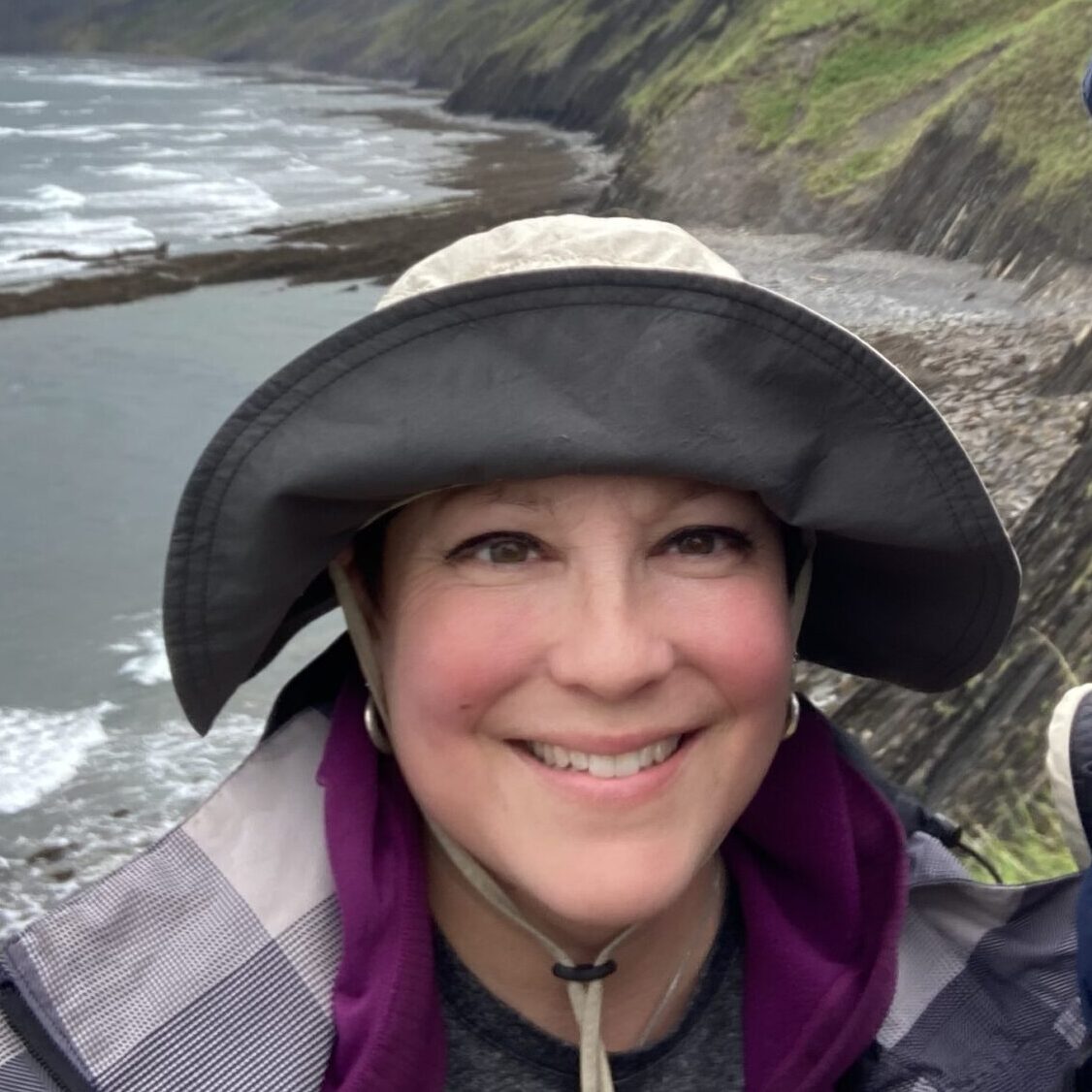 Monica D’Arcy, PhD, MS, is a core faculty member at the Rutgers Institute for Health, Health Care Policy, and Aging Research, an instructor for Pharmacoepidemiology and Treatment Sciences and the Rutgers Institute for Health, an instructor of cancer and pharmacoepidemiology in the Department of Medicine, Division of Medical Oncology, Section of Cancer Epidemiology and Health Outcomes at Rutgers University, and an Associate member in the New Jersey Cancer Center. She achieved her undergraduate degrees in mathematics and computer science engineering from the University of Pennsylvania, her MS in epidemiology from Temple University and her PhD from the University of North Carolina in cancer and pharmacoepidemiology. Prior to initiating her Doctorate, she amassed over a decade of software development and bioinformatics experience through impactful contributions in both industry and at the Children’s Hospital of Philadelphia. A common theme underlying Dr. D’Arcy’s research is the use of diverse data sources, novel strategies, and innovative computational and pharmacoepidemiologic methods to reduce the burden of cancer.
Monica D’Arcy, PhD, MS, is a core faculty member at the Rutgers Institute for Health, Health Care Policy, and Aging Research, an instructor for Pharmacoepidemiology and Treatment Sciences and the Rutgers Institute for Health, an instructor of cancer and pharmacoepidemiology in the Department of Medicine, Division of Medical Oncology, Section of Cancer Epidemiology and Health Outcomes at Rutgers University, and an Associate member in the New Jersey Cancer Center. She achieved her undergraduate degrees in mathematics and computer science engineering from the University of Pennsylvania, her MS in epidemiology from Temple University and her PhD from the University of North Carolina in cancer and pharmacoepidemiology. Prior to initiating her Doctorate, she amassed over a decade of software development and bioinformatics experience through impactful contributions in both industry and at the Children’s Hospital of Philadelphia. A common theme underlying Dr. D’Arcy’s research is the use of diverse data sources, novel strategies, and innovative computational and pharmacoepidemiologic methods to reduce the burden of cancer.
Blánaid Hicks, PhD
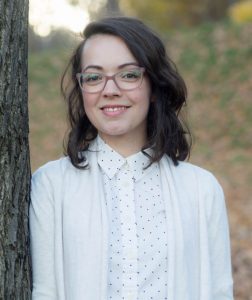 Blánaid Hicks, PhD is a Queen’s University Vice Chancellor’s Fellow (Assistant Professor) at the Centre for Public Health, Queen’s University Belfast (QUB) in Northern Ireland. After receiving her PhD in 2015 from QUB, Dr Hicks was a postdoctoral fellow in pharmacoepidemiology at the Department of Epidemiology, Biostatistics and Occupational Health, McGill University. She subsequently returned to QUB on a Cancer Research UK Population Research Fellowship in 2017. Dr Hicks’ research has a focus on cancer pharmacoepidemiology.
Blánaid Hicks, PhD is a Queen’s University Vice Chancellor’s Fellow (Assistant Professor) at the Centre for Public Health, Queen’s University Belfast (QUB) in Northern Ireland. After receiving her PhD in 2015 from QUB, Dr Hicks was a postdoctoral fellow in pharmacoepidemiology at the Department of Epidemiology, Biostatistics and Occupational Health, McGill University. She subsequently returned to QUB on a Cancer Research UK Population Research Fellowship in 2017. Dr Hicks’ research has a focus on cancer pharmacoepidemiology.
She has expertise in using UK electronic health records and other international databases for the evaluation of the long-term effects of medications on cancer risk and survival and the use, effectiveness, and safety of cancer treatments.
Jessica Islam, PhD, MPH
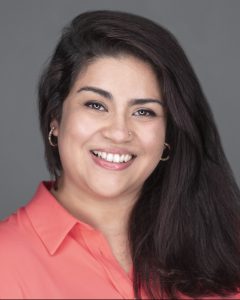 Jessica Y. Islam, PhD, MPH is a cancer epidemiologist and health services researcher. She completed her PhD in Cancer Epidemiology at UNC Gillings School of Global Public Health. She collaborated with Dr. Lund as a Post-Doctoral Fellow during her time as a Cancer Care Quality Training Program trainee through the UNC Lineberger Comprehensive Cancer Center. Dr. Islam’s research program focuses on evaluating disparities across the cancer care continuum, at the intersection of infections and cancer. During her time as a Post-Doc, she initiated projects under Dr. Lund’s mentorship to leverage multi-payer insurance claims to evaluate cancer treatment outcomes and patterns among people living with HIV in the state of NC and the US. These projects and collaborations with Dr. Lund are ongoing. Currently, Dr. Islam is a faculty member in the Cancer Epidemiology Program at H. Lee Moffitt Cancer Center.
Jessica Y. Islam, PhD, MPH is a cancer epidemiologist and health services researcher. She completed her PhD in Cancer Epidemiology at UNC Gillings School of Global Public Health. She collaborated with Dr. Lund as a Post-Doctoral Fellow during her time as a Cancer Care Quality Training Program trainee through the UNC Lineberger Comprehensive Cancer Center. Dr. Islam’s research program focuses on evaluating disparities across the cancer care continuum, at the intersection of infections and cancer. During her time as a Post-Doc, she initiated projects under Dr. Lund’s mentorship to leverage multi-payer insurance claims to evaluate cancer treatment outcomes and patterns among people living with HIV in the state of NC and the US. These projects and collaborations with Dr. Lund are ongoing. Currently, Dr. Islam is a faculty member in the Cancer Epidemiology Program at H. Lee Moffitt Cancer Center.
Jakob Kirkegård, MD, PhD – Surgical Registrar
 Education: MD from Aarhus University, Denmark, 2014. Currently specializing in abdominal surgery, aiming to subspecialize in liver and pancreatic surgery.
Education: MD from Aarhus University, Denmark, 2014. Currently specializing in abdominal surgery, aiming to subspecialize in liver and pancreatic surgery.
Research goals: Aiming to improve survival from pancreatic cancer through early detection, mainly by identifying subgroups at an increased risk. Working to identify pancreatic cancers in patients presenting with acute pancreatitis. Clinical trials in order to optimize selection of patients for pancreatic cancer surgery.
Research education: PhD in pancreatic cancer epidemiology from Aarhus University 2019. Research stays at Department of Clinical Epidemiology, Aarhus University, and visiting scholar at Department of Epidemiology, Gillings, UNC, hosted by Jennifer Lund. Interested particularly in cancer outcomes research and prediction models.
Anthony Matthews, PhD
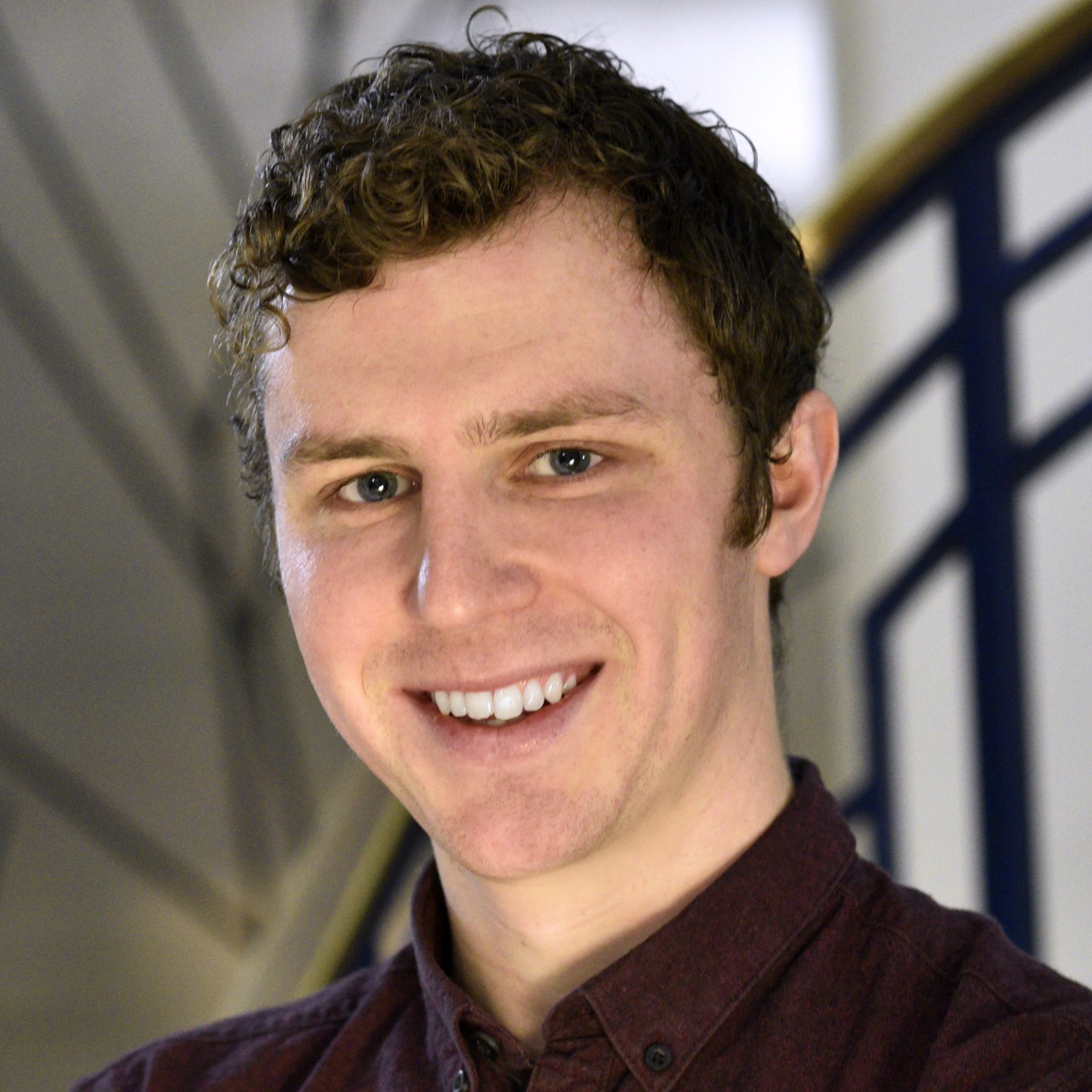 Anthony is a statistical epidemiologist, currently working at the Karolinska Institute, Stockholm. His interests are in understanding how we can use big data to clearly answer important questions about the effects of interventions. This includes developing and applying advanced methodologies to predict and understand what will happen if an individual takes one course of action over another. His work mainly lies within the clinical areas of cancer and cardiovascular disease. Prior to his time in Sweden, Anthony was based at the London School of Hygiene and Tropical Medicine in the United Kingdom, where he achieved his PhD.
Anthony is a statistical epidemiologist, currently working at the Karolinska Institute, Stockholm. His interests are in understanding how we can use big data to clearly answer important questions about the effects of interventions. This includes developing and applying advanced methodologies to predict and understand what will happen if an individual takes one course of action over another. His work mainly lies within the clinical areas of cancer and cardiovascular disease. Prior to his time in Sweden, Anthony was based at the London School of Hygiene and Tropical Medicine in the United Kingdom, where he achieved his PhD.
Michael Webster-Clark, PhD, PharmD
 Michael Webster-Clark, PhD is currently a post-doctoral research associate in the Department of Epidemiology at the University of North Carolina at Chapel Hill. He received a PharmD from Northeastern University in 2009 and a PhD in Epidemiology from the University of North Carolina in 2019, concentrating in pharmacoepidemiology. His research focuses on using quantitative methods to account for differences in the distribution of risk factors between study samples and target populations relevant to public health. He is also studying how the COVID-19 pandemic is distorting and altering the secondary healthcare data commonly used for comparative effectiveness research.
Michael Webster-Clark, PhD is currently a post-doctoral research associate in the Department of Epidemiology at the University of North Carolina at Chapel Hill. He received a PharmD from Northeastern University in 2009 and a PhD in Epidemiology from the University of North Carolina in 2019, concentrating in pharmacoepidemiology. His research focuses on using quantitative methods to account for differences in the distribution of risk factors between study samples and target populations relevant to public health. He is also studying how the COVID-19 pandemic is distorting and altering the secondary healthcare data commonly used for comparative effectiveness research.
Sejin Lee, PhD, MA, MBA
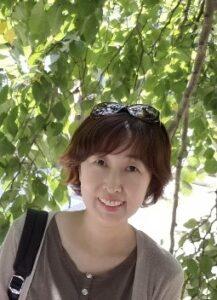 Sejin is a PhD candidate in the department of Health Policy and Management (Minor track: Decision Sciences and Outcomes Research). She received a Bachelor of Pharmacy and an MBA in South Korea and earned her Master of Arts in Adult Learning and Leadership from Columbia University. Prior to her PhD program, she had over 15 years of work experience, primarily in the global healthcare industry. Throughout Sejin’s career, she has had a close association with the pharmaceutical industry, working within it and as a supporting partner in a number of roles across communications, clinical research, regulatory affairs and healthcare analytics services. At UNC, she has been involved in various research activities on patient reported outcomes as well as qualitative research. Sejin’s broad research interests are in cancer outcomes, comparative effectiveness research and patient reported outcomes. Her dissertation research focused on treatment decision making and patterns of treatment in patients with advance melanoma, focusing on immunotherapy and targeted therapy.
Sejin is a PhD candidate in the department of Health Policy and Management (Minor track: Decision Sciences and Outcomes Research). She received a Bachelor of Pharmacy and an MBA in South Korea and earned her Master of Arts in Adult Learning and Leadership from Columbia University. Prior to her PhD program, she had over 15 years of work experience, primarily in the global healthcare industry. Throughout Sejin’s career, she has had a close association with the pharmaceutical industry, working within it and as a supporting partner in a number of roles across communications, clinical research, regulatory affairs and healthcare analytics services. At UNC, she has been involved in various research activities on patient reported outcomes as well as qualitative research. Sejin’s broad research interests are in cancer outcomes, comparative effectiveness research and patient reported outcomes. Her dissertation research focused on treatment decision making and patterns of treatment in patients with advance melanoma, focusing on immunotherapy and targeted therapy.
Others not pictured:
Danielle Chun, PhD, MPH
